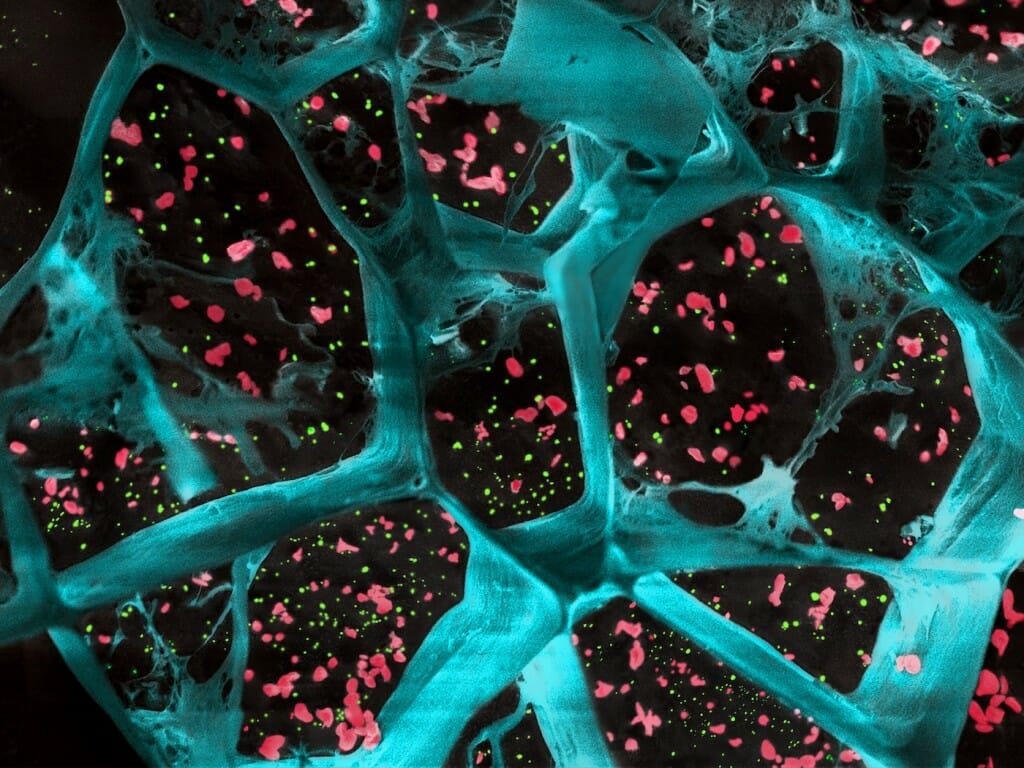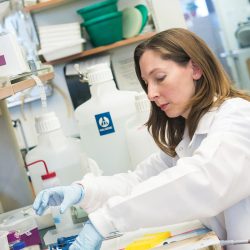Super Gel Battles Cancer
It increases the lifespan of mice with minimal side effects.

A high-magnification of the hydrogel (in blue) encapsulating T cell-activating platelets (in red) and nanoparticles that release a drug to inhibit tumor-boosting cells (in green). This gel inhibited the growth of cancer cells after surgical removal of different types of tumors.
A new biodegradable gel improves the immune system’s ability to keep a variety of cancerous tumors at bay in mice, according to experiments led by pharmacy professors Quanyin Hu and Seungpyo Hong and colleagues in the UW School of Medicine and Public Health.
Surgery is an excellent treatment for many tumors, but small numbers of cancer cells that remain after the operation can allow tumors to grow back. To counteract this process, the researchers developed their gel to slowly release two key components — the drug pexidartinib and platelets bound to immune-stimulating antibodies.
The gel significantly slowed the growth of lingering cancer cells and increased the lifespan of mice. It also greatly reduced the spread of metastasizing breast cancer. A bonus was that the gel had insignificant side effects.
In recent years, Hong and Hu have independently been developing new ways to control cancers without traditional chemotherapy, which has severe side effects. By collaborating, they hope to supercharge their ability to continue testing creative approaches that could benefit human patients in the future.
Published in the Fall 2022 issue



Comments
No comments posted yet.